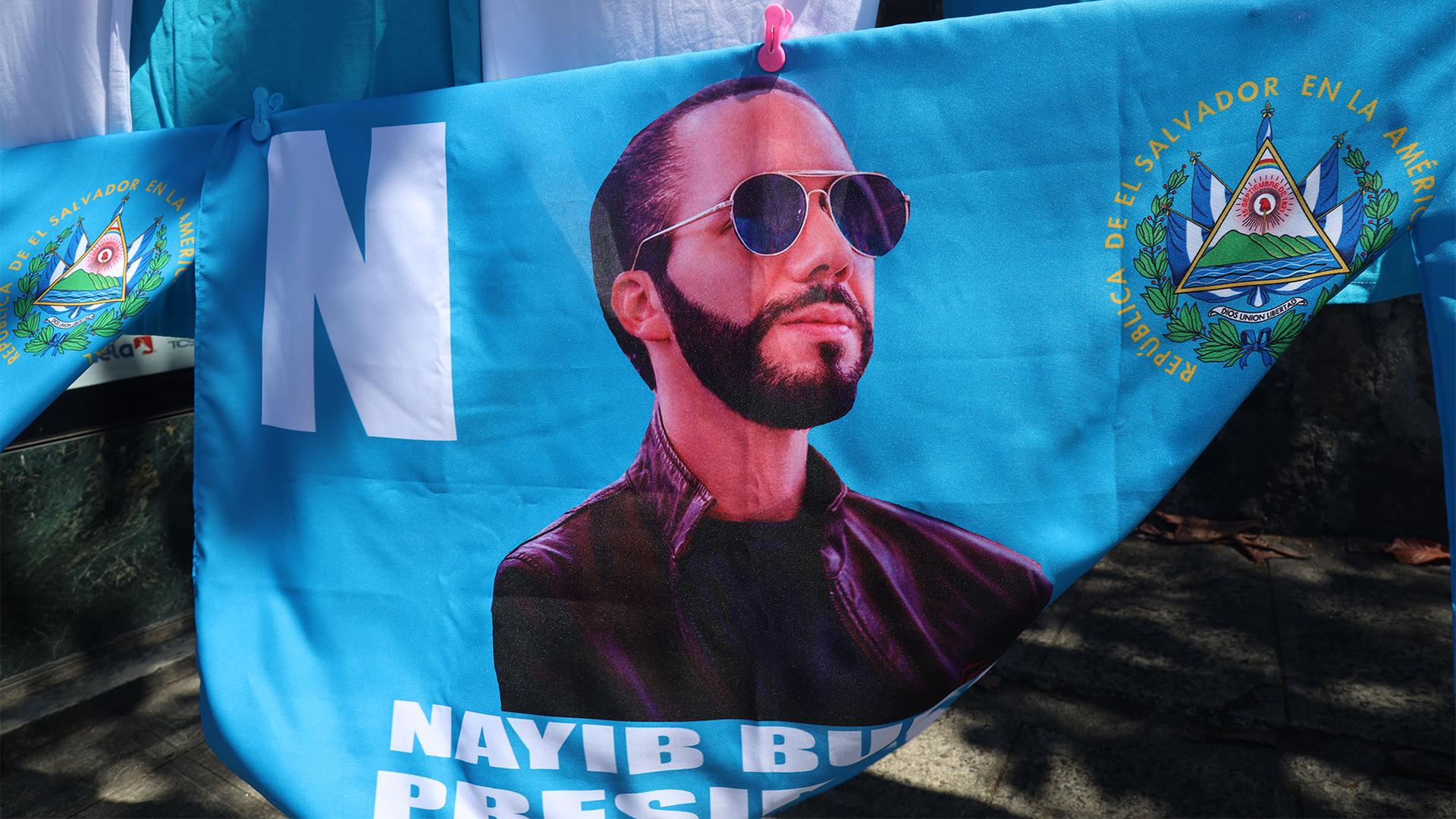Supporters of President Nayib Bukele danced and cheered on Sunday night in El Salvador’s main plaza.
“I am happy, because we are enjoying true freedom,” said Teresa Vazquez, wearing a scarf with a slick cartoon image of 42-year-old Bukele in sunglasses. “I’m 67 years old and we’ve never had a president like we have today.”
Bukele is expected to be reelected as El Salvador’s leader, despite the constitution prohibiting second terms. Although some people are concerned about the country’s political future, Bukele is extremely popular among much of the population.
He’s amassed an almost fanatical fan base. And they turned out for him on election day.
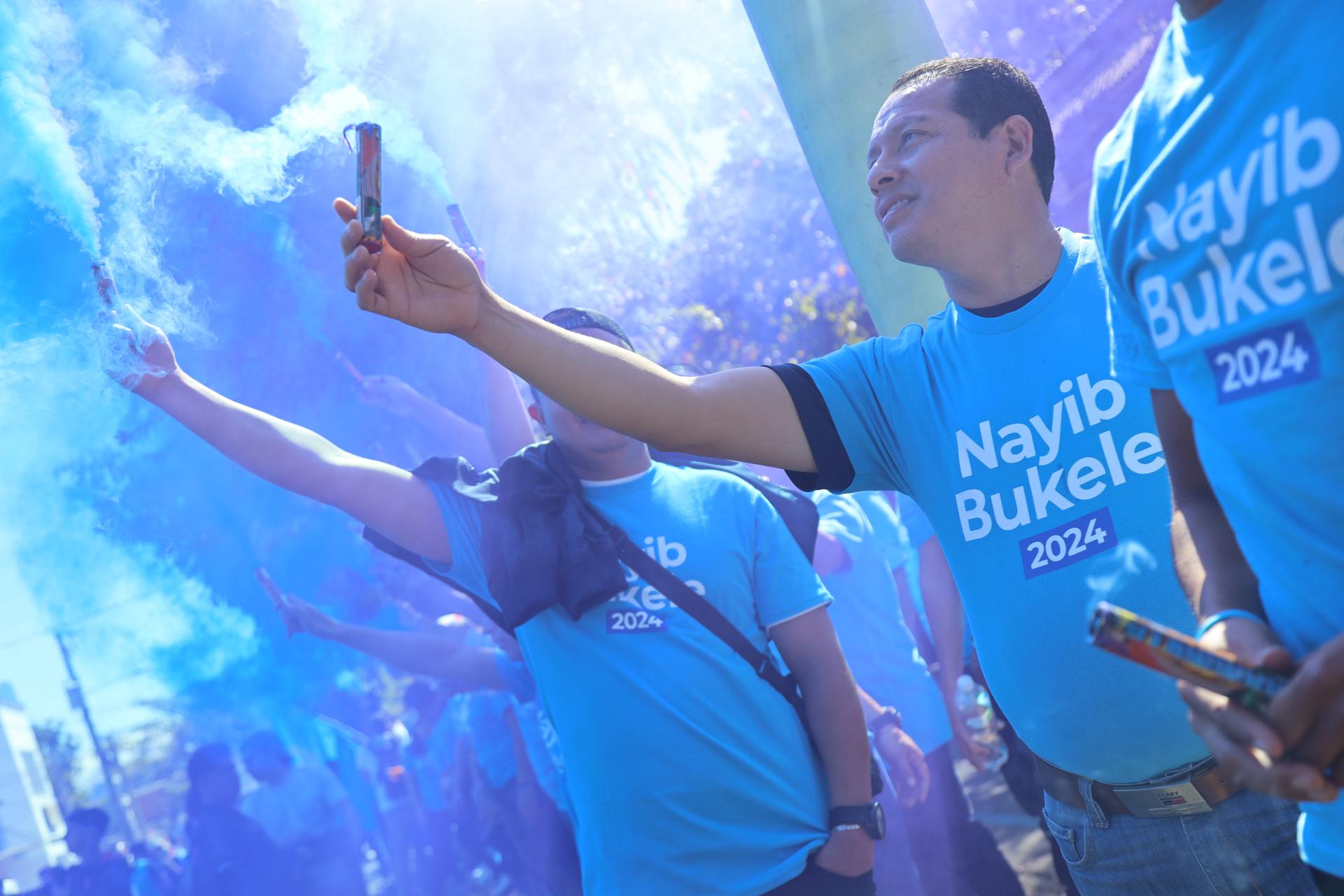
The day of the vote itself went relatively without incident. People made their choice for president and the legislative assembly. But there have been some issues.
On Monday afternoon, members of the Supreme Electoral Court, which oversees the elections, held a press conference announcing that there was a problem with uploading the data of the remaining votes and that they were going to have to double-check the ballots manually, a process that could take at least a week.
The vote count is now stalled at 70%, even though Bukele still has a resounding lead with 83% and is still expected to win.
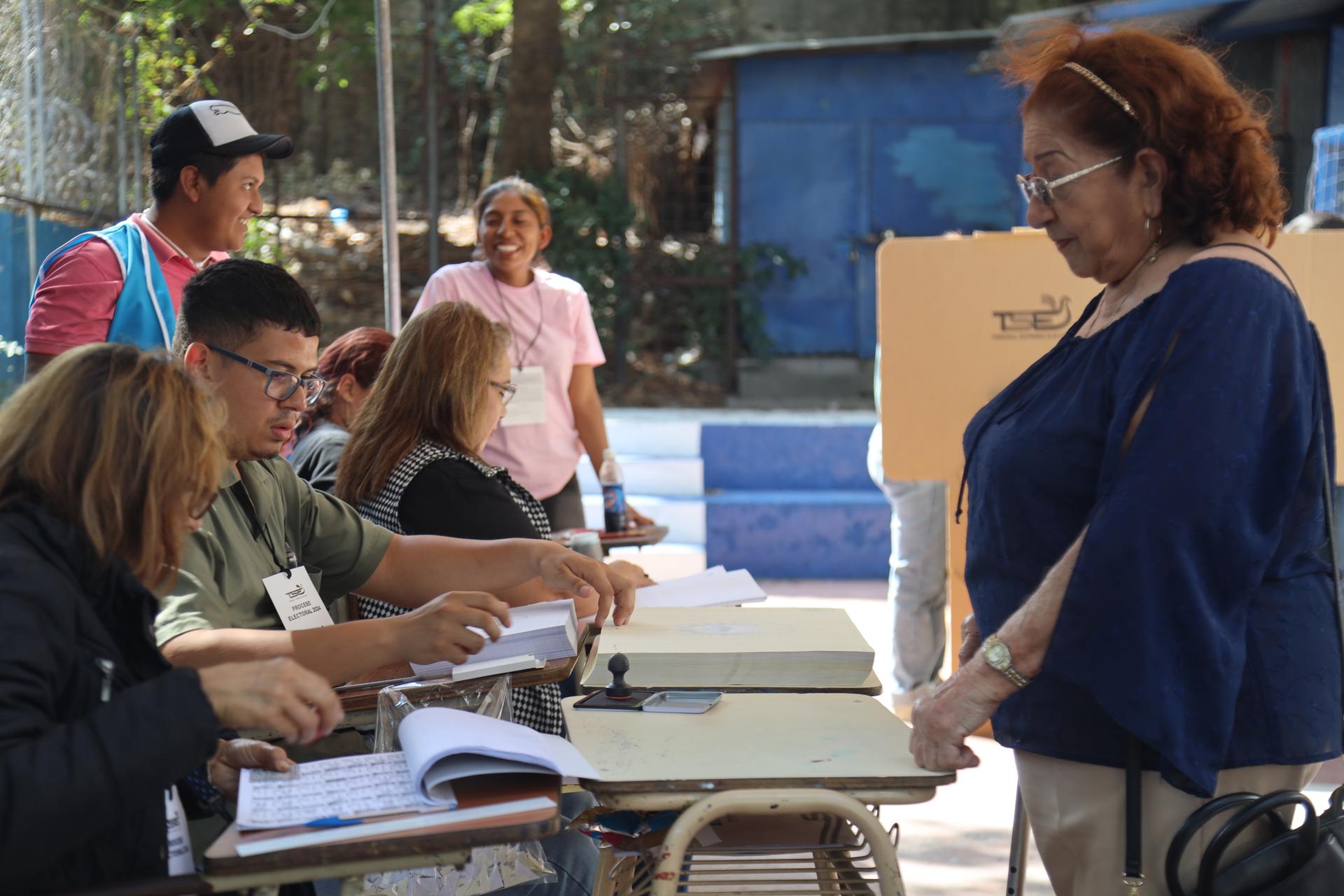
Opposition parties and electoral experts have denounced the situation. And there have also been complaints of problems for people living overseas. This is the first vote in which Salvadorans abroad could vote. But some said they were unable to get the system to work to accept their vote.
According to the website for the Supreme Electoral Court, only 5% of votes for legislative assembly members have been tallied so far. It’s an important battleground. All 60 seats are up for grabs and Bukele says he’s picked up most of them, but a final figure is still pending.
Political campaigning is usually prohibited on election day. But on Sunday, billboards and banners of Bukele’s party, Nuevas Ideas, or New Ideas, draped across roadsides and filled the streets in front of voting centers.
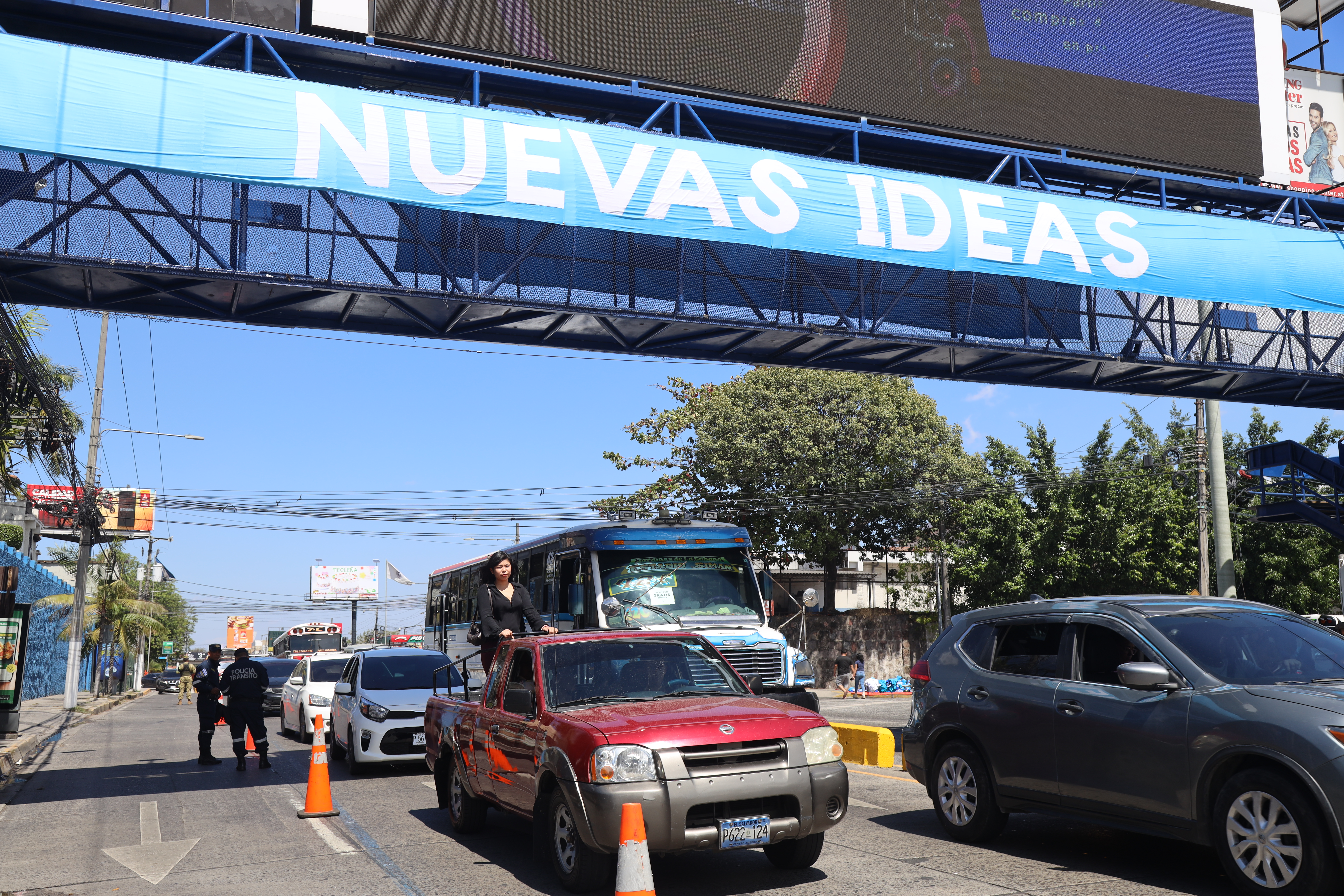
Outside polling stations, Bukele supporters cheered for their president and even directed some voters on how to vote for Bukele or New Ideas candidates. During his first term, Bukele’s party in Congress ousted five Supreme Court justices and appointed a new court. The new justices re-interpreted the constitution, enabling Bukele to run for an unprecedented second term.
“This election is unconstitutional,” one voter said. He declined to give his name for fear of reprisals. “As citizens, we have the right to come and vote, but that doesn’t mean that it’s constitutional.”
But that was not an issue for many people at the polls. Most Salvadorans say their top issue is security. And that has been Bukele’s greatest achievement.
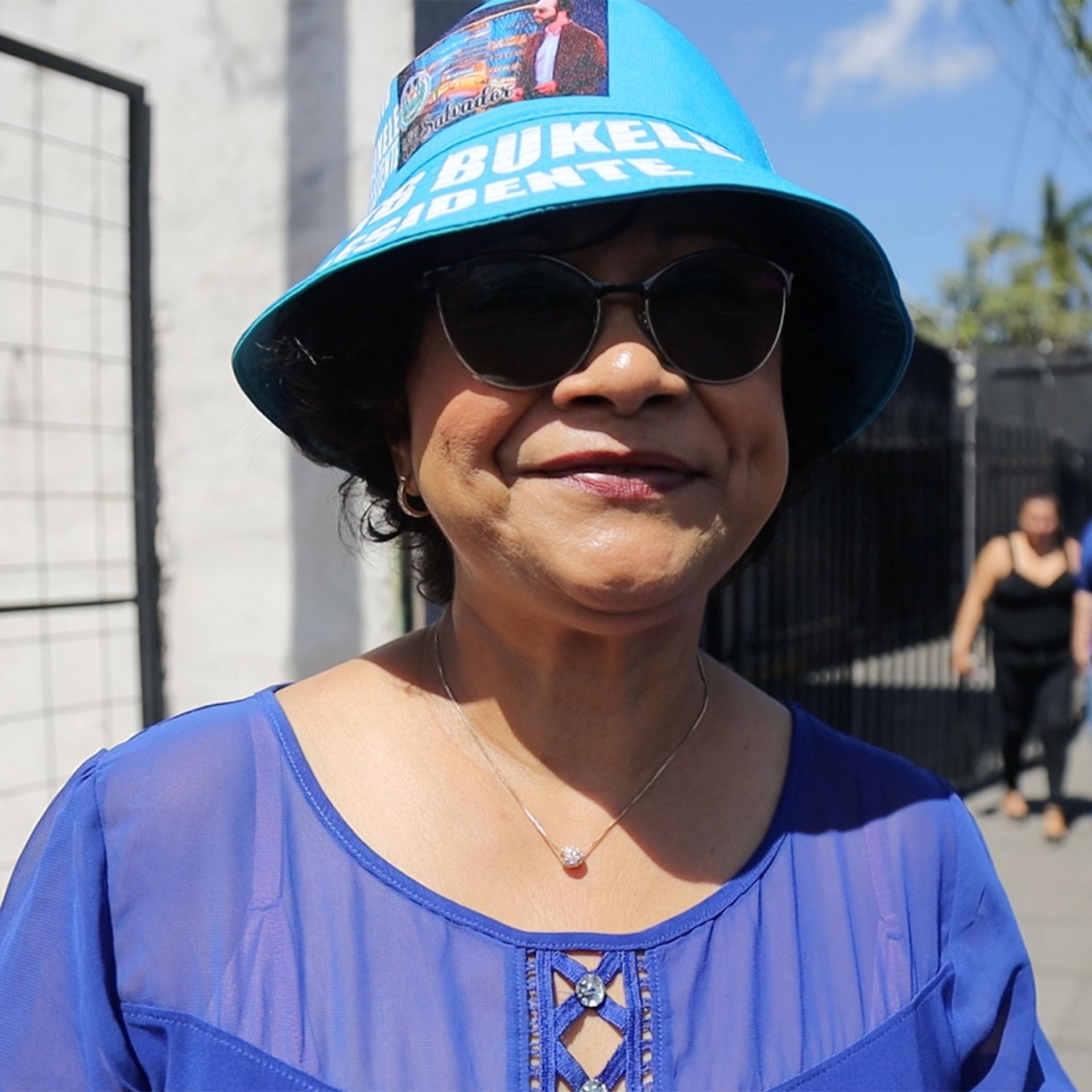
Two years ago, Bukele instituted a state of emergency, suspending habeas corpus and the rule of law. It enabled state security forces to detain and jail 70,000 alleged gang members indefinitely.
The move drastically reduced gang activity and violence across the country.
But family members of the detained say tens of thousands of those jailed are innocent. And they want their loved ones returned.
Last Friday, dozens of mothers and sisters of the detained rallied outside of the country’s Attorney General’s Office, which had closed the investigations into 142 detainee deaths.
“Enough, Bukele” they shouted. They say they’re afraid for their loved ones on the inside and they want the investigations re-opened. Reina Hernandez carried a large pink sign which read, “Freedom for my son.”
“They captured my son on May 4, 2022,” she said. “He’s not involved in gangs, he hasn’t done anything wrong. He has no criminal record. And that’s why I’m here.”
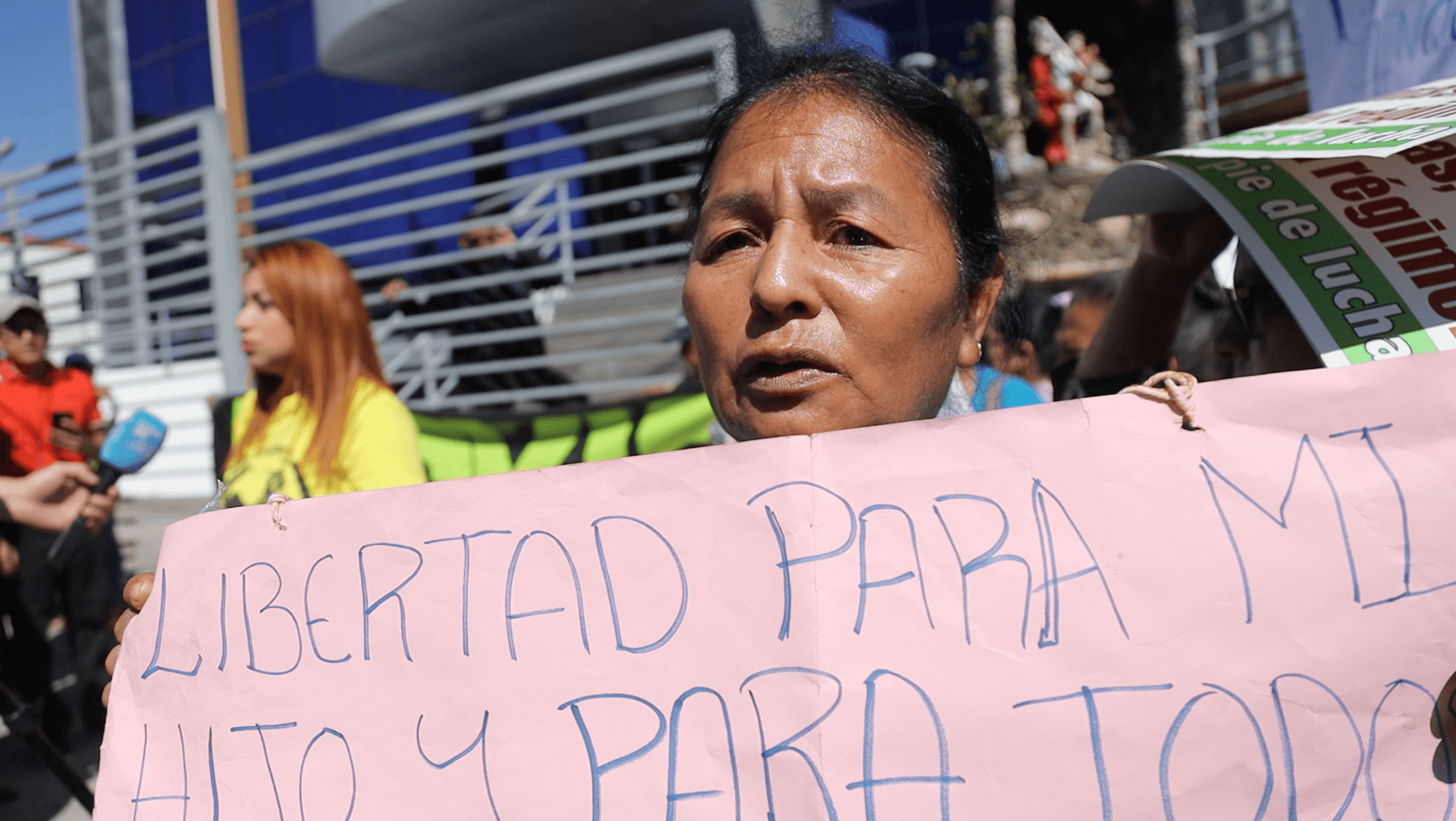
Analysts say Bukele will likely double down, though, on the harsh measures that have won him so much popularity.
His methods are also inspiring others abroad.
Outside the main voting center in San Salvador, a group of Peruvians watched a mass of Bukele supporters celebrate the impending victory. They were there at the invitation of Bukele’s party.
“We are here to copy this very successful security model of President Nayib Bukele, which has shown the world that it can work,” said Armando Mendoza, president of Peru’s municipal police force. “Ecuador has already started to copy it, Costa Rica wants to copy it, Guatemala, Colombia. In Latin America, everyone wants a Bukele model because it has shown results.”
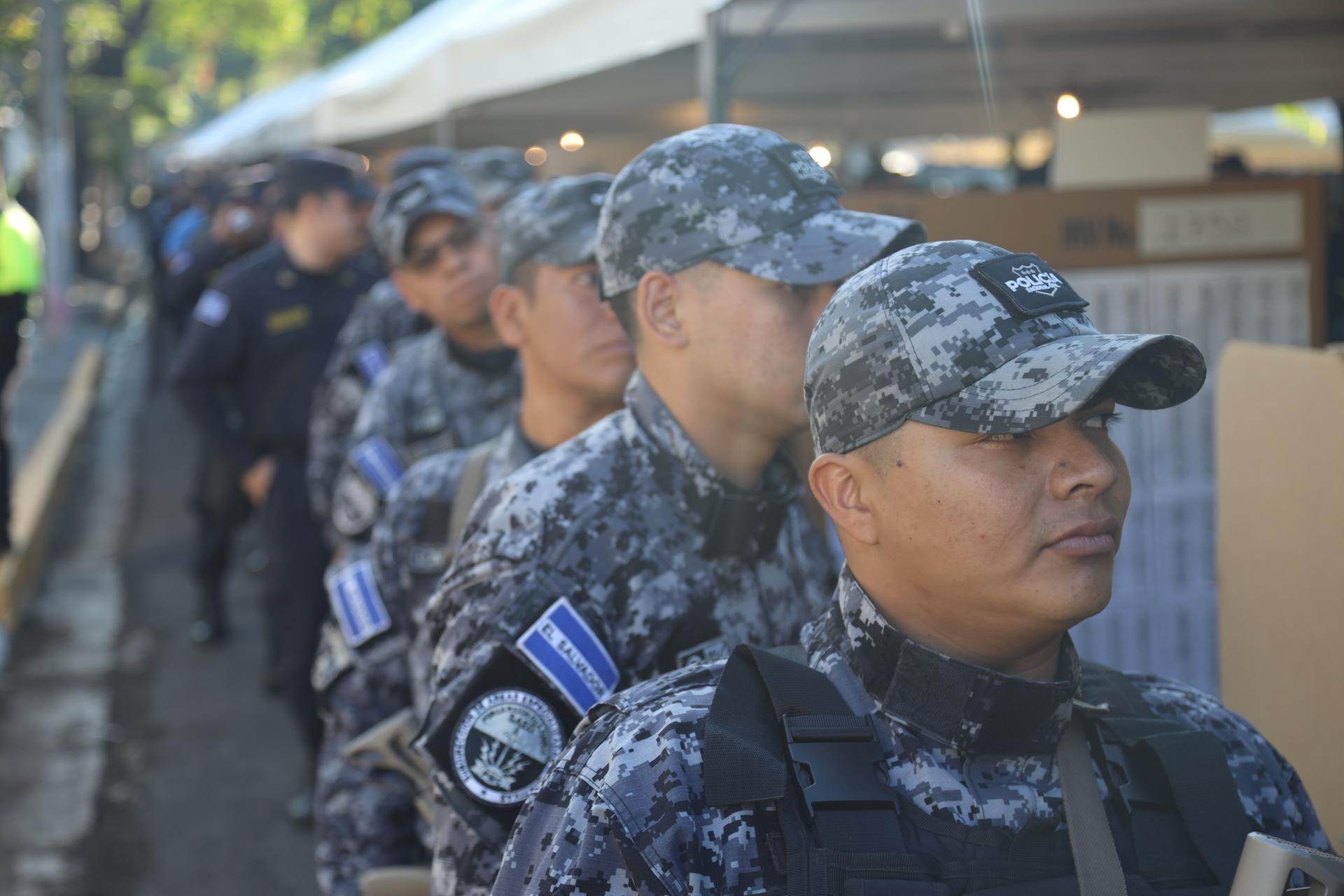
During a press conference on Sunday, Bukele said he was already exchanging ideas with Argentina’s new libertarian President Javier Milei.
At home, the future of El Salvador remains unclear. Bukele has amassed unprecedented power. He says he’s creating a new democracy, though to outside observers, it looks a lot like autocracy. And, at the moment, the majority of the country seems to be on board.
Marcos Lopez has been selling political party T-shirts and flags every election for years outside the voting center where Bukele cast his ballot.
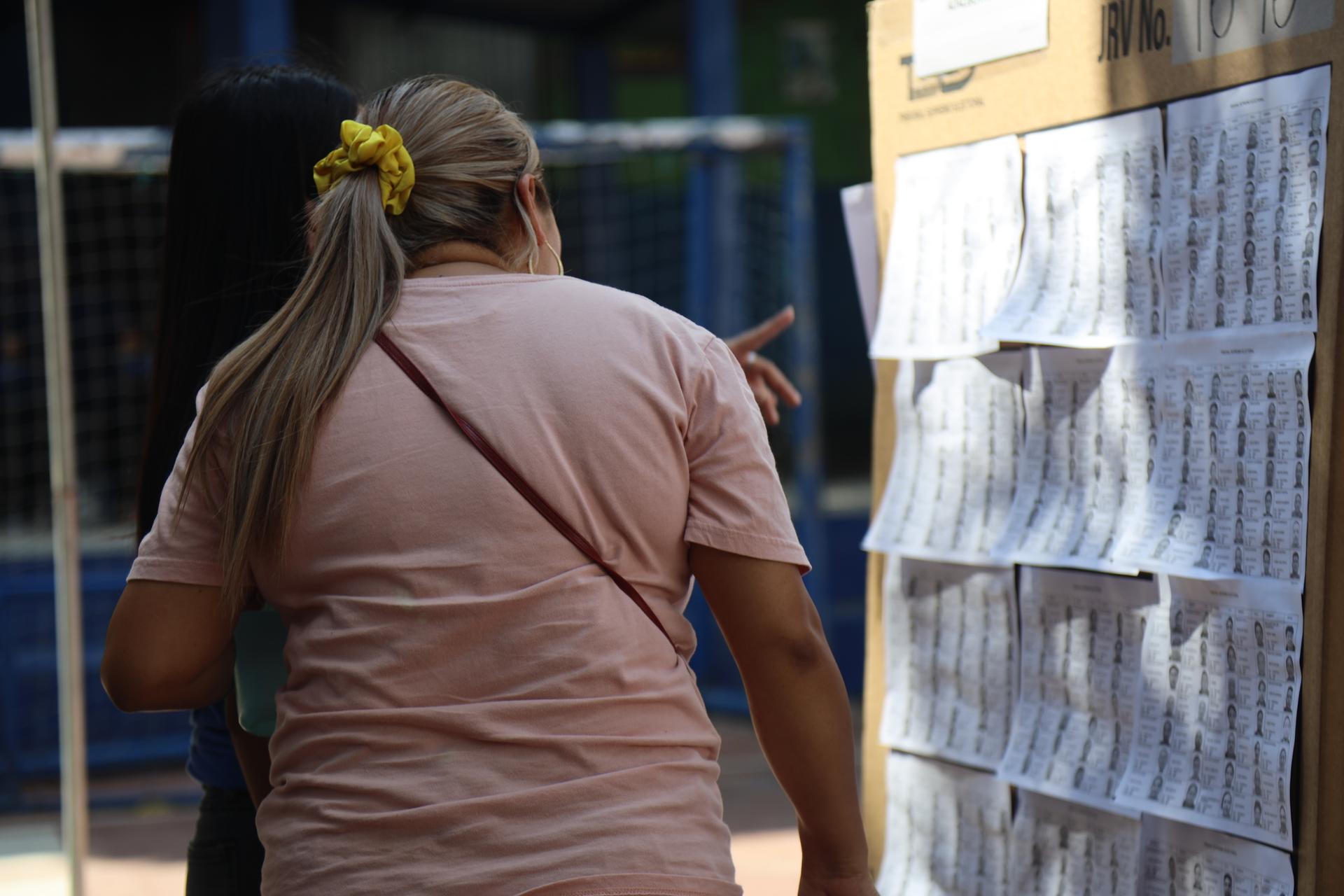
“A long time ago, we used to sell shirts from the other parties when they were around, but now that there’s the official party, that’s what we sell,” he said. “We don’t need to sell any other shirts, because people only ask for the official party shirt.”
It’s a telling sign of the uncertain road ahead in El Salvador. Though one thing is for sure: Bukele is in charge, and he has a mandate.
Related: El Salvador imprisons dozens of foreign visitors in crackdown on crime
